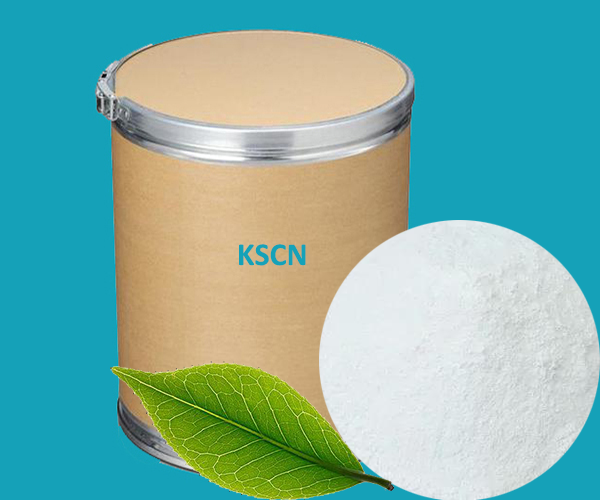Potassium thiocyanate is a chemical compound that contains potassium, sulfur, carbon, and nitrogen atoms with the formula KSCN. It is formed by the fusion of sulfur with potassium cyanide, extraction with hot aqueous alcohol, evaporating and cooling.
Potassium thiocyanate occurs as colourless, transparent prismatic crystals that are hygroscopic. It is odourless and has a cooling, saline taste. Alcoholic solution of potassium thiocyanate was shaken up with an acid soil a red colour developed, somewhat in proportion to the acidity of the soil. Therefore, potassium thiocyanate can be used to test the acidity of the soil.
Properties of Potassium Thiocyanate
Chemical Formula : KSCN
Appearance : Colourless deliquescent crystals
Odour : Odourless
Density : 1.89 g/cm³
Molecular Weight/ Molar Mass : 97.181 g/mol
Boiling Point : 500 °C
Melting Point : 173 °C
Solubility : 177 g/100 mL (soluble in water)
Uses of Potassium Thiocyanate
Used in conjunction with ferric chloride volumetric solution, a red compound is produced at the endpoint.
Used in cumbersome, to be carefully followed with blood tests. Overdose may lead to a serious intoxication and blood dyscrasias.
Used in the laboratory as a sensitive reagent for the iron ion and with silver nitrate solution for the titrimetric estimation of halides.
 English
English Español
Español Português
Português Français
Français Deutsch
Deutsch Русский
Русский 中文
中文 日本語
日本語
